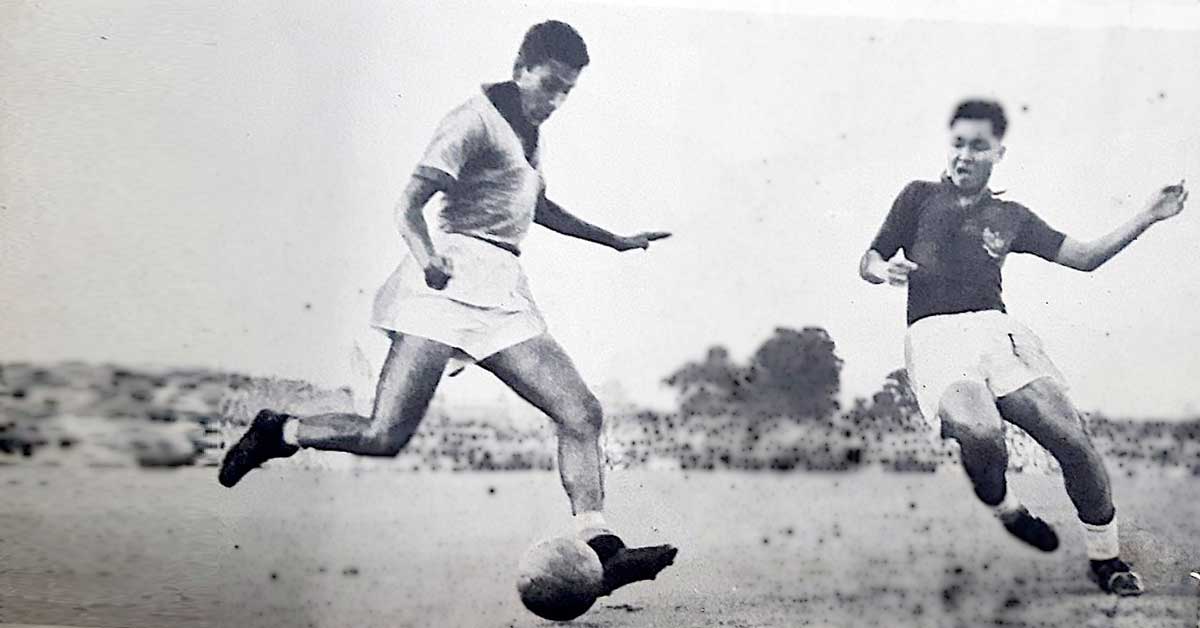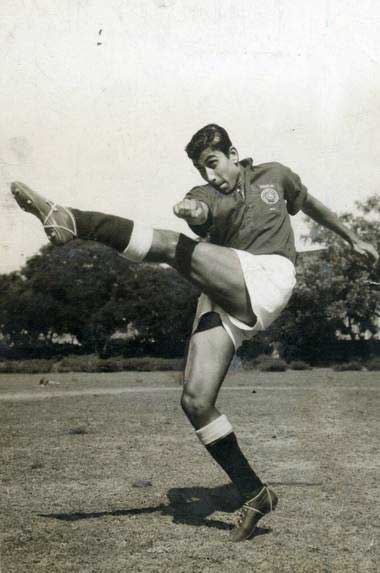Featured
PK Banerjee’s brilliant and yet simple legacy
PK, who passed away on Friday, left behind two daughters and a legion of admirers of his brilliant yet simple legacy in football.

PK Banerjee, who was the torchbearer of Indian football for decades that established him as one of the legends in the country, breathed his last on Friday. He left behind two daughters and a legion of admirers of his brilliant yet simple legacy in football.
News of PK’s death predictably rocked the Indian football fraternity., which is filled with players who grew up watching PK as he scored the goal in the final that helped India win the gold medal in the 1962 Asian Games beating South Korea.. Fueled by a seemingly endless reservoir of self-confidence, PK was a magical figure on the football pitch almost from the moment he arrived, at age 15, representing Bihar in the '1951 Santosh Trophy.
https://twitter.com/TheBridge_IN/status/1240921004299313152
PK had a humble background, his father was a junior employee in the government earning a meagre salary who had to support a family comprising of his wife, seven children, paternal grandmother, aunts, uncles and cousins. And when his father died, being the eldest son, the onus was on PK to help and support his family.
His family had moved to Calcutta amidst the tension of partition, they had no house and had to roam around like refugees. It was one of the toughest times in PK’s life but then, football showed the path. He landed his first job because of the sport when he was just 15 and he would never look back.
Over the next few decades, PK would go on to live, breath and sleep the Indian football dream. His career kickstarted in Aryan in 1954, but it was at Eastern Railways where he spread his wings. Although he had joined the amateurish club because of a job, PK inspired the team to make its way up the rungs of the Calcutta Football League and win the title in 1958.
That was the first — and only until Peerless SC won last year — instance any team outside the Big Three clubs of the Calcutta maidan, Mohun Bagan, East Bengal and Mohammedan Sporting, had won the CFL title.
 Source: The Hindu
Source: The Hindu
All this while, his fearlessness and prodigious talent had cme to fore and he was an intergral part of the national team. He made his debut in national colours in 1954, and even became an Olympian at the age of 20 when he represented the country at the Melbourne Games.
However, it was in the 1960 Olympics, where PK would go on to score the most famous goal of his career. Up against France, the right winger player scored a vital equaliser which helped India secure their only draw of the Olympics after losing to Hungary and Peru in the first two matches. Then, two years later, he would lead India to a historic Asiad gold.
As a coach, as well, PK’s exploits stretched far and wide. From winning the Asian Games bronze with the national team, helping East Bengal for CFL titles, to presiding over Mohun Bagan’s treble — IFA Shield, Durand Cup and Rovers Cup — in 1977, he enjoyed a lot of success. Notably, he also coached the Bagan side that took on Pele’s New York Cosmos and drew 2-2.
What gave PK his legendary status was his larger than life approach both as a footballer and then as a coach. His death leaves behind a void in Indian football that can hardly be ever filled. “I would like to offer my heartfelt condolences to the family of Mr. PK Banerjee as well as to the entire Indian football fraternity,” wrote Sunil Chhetri, the current Indian captain, on Twitter. “He was a pioneer in every sense of the word, and his achievements will forever have a place in Indian footballing history.
